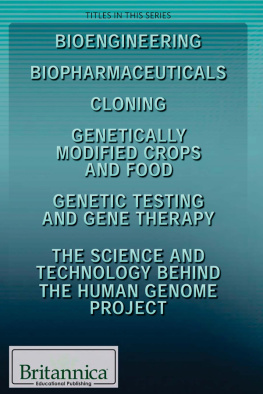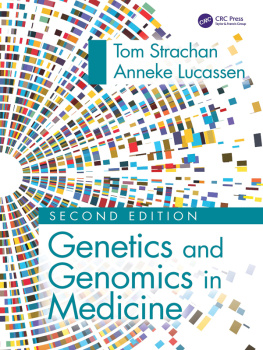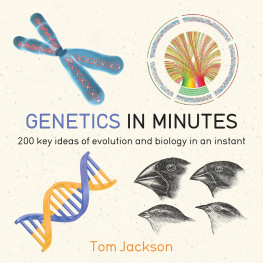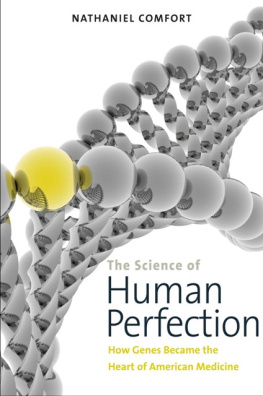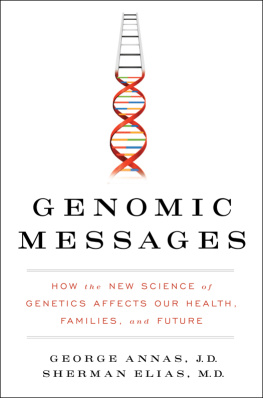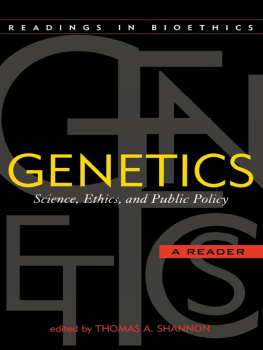Biotechnology in
Our Lives
What Modern Genetics Can Tell You about
Assisted Reproduction, Human Behavior,
Personalized Medicine, and Much More
Sheldon Krimsky and Jeremy Gruber,
editors

Skyhorse Publishing
This book is dedicated to members of the Council for Responsible Genetics Board of Directors and Advisory Board who are no longer with us but whose work and vision continue to inspire new generations of social and environmental justice activists: David Brower, Barry Commoner, Marc Lapp, Anthony Mazzocchi, Albert Meyerhoff, Bernard Rapoport, George Wald, and William Winpisinger.
Copyright 2013 by Sheldon Krimsky and Jeremy Gruber
All Rights Reserved. No part of this book may be reproduced in any manner without the express written consent of the publisher, except in the case of brief excerpts in critical reviews or articles. All inquiries should be addressed to Skyhorse Publishing, 307 West 36th Street, 11th Floor, New York, NY 10018.
Skyhorse Publishing books may be purchased in bulk at special discounts for sales promotion, corporate gifts, fund-raising, or educational purposes. Special editions can also be created to specifications. For details, contact the Special Sales Department, Skyhorse Publishing, 307 West 36th Street, 11th Floor, New York, NY 10018 or info@skyhorsepublishing.com.
Skyhorse and Skyhorse Publishing are registered trademarks of Skyhorse Publishing, Inc., a Delaware corporation.
Visit our website at www.skyhorsepublishing.com.
10 9 8 7 6 5 4 3 2 1
Library of Congress Cataloging-in-Publication Data
Krimsky, Sheldon.
Biotechnology in our lives: what modern genetics can tell you about assisted reproduction, predicting criminal behavior, and much more / Sheldon Krimsky, Jeremy Gruber.
pages cm
ISBN 978-1-62087-573-5 (hardcover: alk. paper) 1. Medical innovationsSocial aspects.
2. Genetic engineeringSocial aspects. 3. Medical technologySocial aspects. I. Gruber, Jeremy.
II. Title.
RA418.5.M4K75 2013
610.284dc23
2013005417
Printed in the United States of America
CONTENTS
PART I: GENETIC PRIVACY AND DISCRIMINATION:
CAN YOUR GENES KEEP YOU FROM GETTING INSURANCE?
PART II: GENETICS AND MEDICINE: CAN GENE THERAPY
CURE CANCER AND OTHER DISEASES?
PART III: ASSISTED REPRODUCTION: WHAT DO YOU NEED TO
KNOW ABOUT GENETICS AND CHILDBIRTH?
PART IV: BEHAVIORAL GENETICS:
DOES OUR DNA DETERMINE HOW WE ACT?
PART V: FORENSIC DNA: WHY WOULD
THE FBI WANT YOUR GENES?
PART VI: GENETICS AND POPULAR CULTURE: HOW DOES
THE MEDIA PORTRAY BIOTECHNOLOGY?
ACKNOWLEDGMENTS
W e are grateful for the public interest commitment and superb work of GeneWatch editors and editorial boards past and present: Sam Anderson, Philip Bereano, Kostia Bergman, Phil Brown, Sujatha Byravan, Nancy Connell, Donna Cremans, Christopher Edwards, Leslie Fraser, Phyllis Freeman, Judith Glaubman, Terri Goldberg, Barbara Goldoftas, Colin Gracey, Susan Gracey, Daniel Grossman, Jeremy Gruber, Ruth Hubbard, Kit Johnson, Brandon Keim, Sophia Kolehmainen, Sheldon Krimsky, Herbert Lass, Evan Lerner, Gary Marchant, Wendy McGoodwin, Shelley Minden, Eva Ng, Rayna Rapp, Barbara Rosenberg, Peter Shorett, Seth Shulman, Christine Skwiot, Martin Teitel, Suzanne C. Theberge, Jonathan B. Tucker, Shawna Vogel, Nachama Wilker, Kimberly Wilson, and SusanWright.
We would like to thank Holly Rubino, editor-at-large for Skyhorse Publishing, who provided editorial guidance that helped the editors clarify the books goals and audience.
We also wish to acknowledge the substantial support of both the Cornerstone Campaign and the Safety Systems Foundation.
INTRODUCTION
T hirty years ago a group of scientists, public and occupational health advocates, disability rights activists, environmentalists, and union leaders formed the Council for Responsible Genetics, an independent nonprofit organization that has thus far taken no funding from government or corporations. Today, the CRG remains the only biotech public interest organization that is explicitly dedicated to examining the best science, interpreting the results, assessing the implications, communicating them to a general audience, and facilitating meaningful, measurable change in the field of biotechnology.
Among the first projects undertaken by the CRG was the publication of GeneWatch, a magazine that provided timely information and commentary on social and ethical implications of advances in genetics and their applications to biotechnology. The CRG was the first public interest organization to bring the social issues raised by genetic technology to a broad public readership before the appearance of the Internet.
As biotechnology grew into a multi-billion-dollar financial sector, genetic technology began to enter almost every area of human life: from the genetically modified foods that we eat to the biodiversity of our ecosystem, from human health and reproductive technologies to the operation of the criminal justice system. From its inception, GeneWatch has filled the critical role of analyzing the rush of information and opinion resulting from the rapid growth in genetic research and technology. GeneWatch expanded from laboratory and occupational safety to biological weapons, human genetic engineering, cloning, reproductive technologies, genetically modified crops, and genetic privacy and discrimination. Contributors to GeneWatch had a gift for communicating complex science to popular audiences while situating the science in a social context.
Apart from GeneWatch, the CRG has also contributed to public discussion by framing issues in biotechnology from a social justice perspective. It has issued policy statements and published books such as Preventing a Biological Arms Race, Changing the Nature of Nature, Rights and Liberties in the Biotech Age, Genetic Explanations: Sense and Nonsense and Race and the Genetic Revolution. The CRG has also worked with other organizations for the passage of national legislation that has resulted in turning the international treaty banning biological weapons into domestic law and in passing the Genetic Information Nondiscrimination Act. The CRG has held workshops, organized conferences, and published many articles covering agricultural biotechnology. It has raised public understanding about the patenting of seeds, herbicide resistant crops, genetically modified food, bovine growth hormone, and biodiversity. The CRG staff and board members regularly assist policy makers and have testified before Congress, federal agencies, regulatory bodies, and state legislatures.
CRG issued the Genetic Bill of Rights, which consisted of ten principles for a humane biotechnology. Among the principles was a call for a ban on human genetic engineering, a consumer right to purchase food unaltered by foreign genes, and a right to be protected from genetic discrimination in all forms of civil society. As the preamble to the Genetic Bill of Rights states, People everywhere have the right to participate in evaluating the social and biological implications of the genetic revolution and in democratically guiding its applications.
For this book, the editors of GeneWatch have selected the best essays published over its thirty-year run. Among the contributors are leading scientists and social activists who demystify the science while giving readers insight into how genetic technologies affect their lives. Readers will find essays that cover a variety of subjects, like assisted reproduction, the potential for error and discrimination in DNA testing, how biotechnology has been portrayed in science fiction, personalized genetic medicine, how genetics can affect human behavior, and much more. The distinguished contributors include scientists, consumer advocates, womens rights activists, and law professors. The book takes us from where modern genetic technology began, where it is today, and where it might be headed. For this volume we have selected articles from six categories of biotechnology: Genetic Privacy and Discrimination, Assisted Reproductive Technologies, Forensic DNA, Behavioral Genetics, Genetics and Popular Culture, and Genetics in Medicine. The articles not only provide a historical view of the public discourse in biotechnology over three decades but also highlight enduring moral questions faced by modern society. The essays emphasize the authors commitment to the social control of technology, to the critique of genetic reductionism and the view that our genes are our destiny, and to democratic participation in technological choices.



